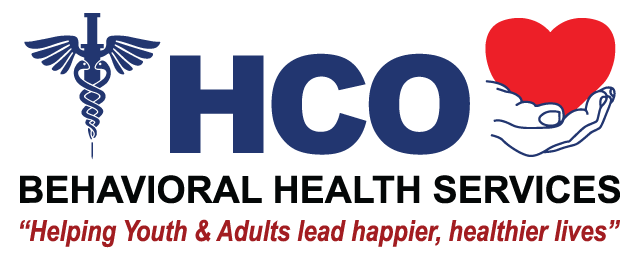

OUR COMMITMENT
HCO Behavioral Health Services is dedicated to providing clients and client families with quality resources to identify challenges and establish successful, prevention and treatment programs. Our programs are tailored specifically to individual patient needs based on diagnosis, age, and skill level, through a combination of developmental and therapeutic services.
THE FIRST VISIT
When making the initial contact with HCO Behavioral Health Services, you will be seen within 5 days for a brief intake appointment with a licensed counselor who will:
- Discuss what to expect from the process
- Gather individual, family background and contact info
- Discuss the your present issues/concerns
- Develop a plan of treatment for success
You will receive the individualized care and treatment you need and be treated with compassion, dignity, and respect.
from our blog
The coronavirus pandemic continues to upend nearly every aspect of our lives. For parents, this includes once reliable school schedules and calendars. As districts consider a potential return to a traditional school environment this fall, continued distance learning, or a hybrid of the two, parents have lots to consider amid this uncertain situation.
What’s safest for my child and the rest of my family? Should we consider homeschooling? How will his or her learning be impacted? How will we cope with what’s decided?
Imagine for a moment that we sit down across from each other and I tell you that I’m going to test your knowledge about behavioral health diagnoses. I will do that by holding up a card with words on it and ask you to tell me everything you know about that word or words. Ready? Here goes. I hold up the first card and it says, “Depression.”
Parenting is a complete rollercoaster ride from conception to forever. Nothing can compare to creating a human and witnessing their developing personalities as they evolve into proper little people learning about the world for the first time. Nothing compares to their little arms hugging you tightly for dear life.
Staying away from the people, places and situations that trigger these thoughts and memories can be appropriate and helpful at times. However, using avoidance as your only strategy can cause more problems than it attempts to solve. These symptoms can’t be avoided all the time, and trying to may cause you to close yourself off to opportunities, create anxiety or feel even more restrained by your traumatic experience.
Treat yourself with kindness and respect, and avoid self-criticism. Make time for your hobbies and favorite projects, or broaden your horizons. Do a daily crossword puzzle, plant a garden, take dance lessons, learn to play an instrument or become fluent in another language.
While trauma is a terrible thing for someone to go through, that doesn’t mean that you have to live with it for the rest of your life. Recovering from abuse-related trauma can be incredibly challenging, but it is possible. Here are six tips you can do to help you in the healing process.
It’s hard to escape. The covid-19 pandemic, its economic fallout, the startling news of new cases in the media — it’s everywhere. From social media memes to news stories, we’re bombarded with updates, stats, conjecture, and gossip around the clock. Many politicians are making statements about reopening the country’s businesses early despite potentially devastating health risks.
Most of us are so busy with jobs, school, and caretaking responsibilities that extended time at home with our loved ones once seemed like an unattainable dream. Self-isolation, resulting from the coronavirus crisis and government orders to shelter in place, however, can bring with it the silver lining of getting to reconnect with those we live with.
We’ve all seen the coronavirus memes: an exhausted woman curled up for a nap on the home treadmill, someone dressed in pajamas watching all of Netflix in a week, or emerging from months inside with snarled gray hair covered in cookie crumbs. Everyone is joking about not taking care of themselves and coming out of quarantine looking like Sasquatch. But the jokes aren’t really jokes, are they? According to a recent study, more than half of Americans feel that the pandemic is harming their mental health.
We know there has been a lot of activity in the news about the coronavirus (COVID-19), its symptoms, and what you should do to prevent the spread of the disease.










